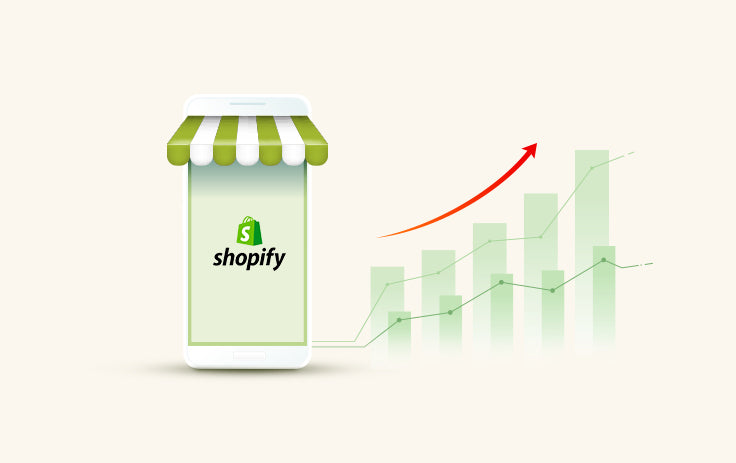Table of Content
If you are a Shopify developer or a Shopify merchant, you may be familiar with Shopify Scripts, a feature that lets you add custom code to your online store. Shopify Scripts can assist you in providing your customers with tailored experiences, including dynamic pricing, deals, shipping choices, payment options, and more.
Shopify Scripts does, however, have a few drawbacks.
-
Shopify Plus plans are the only ones that can use it.
-
It needs a particular development environment and Ruby knowledge.
-
Its use of Shopify's APIs and other third-party services is restricted.
-
Its performance and scalability are constrained.
Shopify has introduced Shopify Functions as a new feature to address these issues, gradually replacing Shopify Scripts over the course of the upcoming year. This change exemplifies Shopify's commitment to creating a more capable and flexible e-commerce platform.
New Shopify Plus users won't have access to Shopify Scripts after the third quarter of 2023 and won't be supported after August 13, 2024. Shopify merchants who currently use Shopify Scripts to personalize discounts and checkout will need to switch to Shopify Functions prior to this date.
Our blog will provide you with details into what Shopify Functions is, how it works as well as the benefits and opportunities it provides to Shopify stores across the globe.
What Is Shopify Functions?
Shopify Functions is a new feature provided by Shopify with which developers can alter the backend logic that drives a portion of Shopify.
It is a serverless computing platform that lets you run custom code on Shopify's cloud infrastructure. Shopify Functions is a game-changer for Shopify developers and merchants who want to create more powerful and customized online stores. With Shopify Functions, you can:
-
Use any programming language and framework of your choice.
-
Access any Shopify API and third-party service with ease.
-
Scale your code automatically and pay only for what you use.
-
Deploy your code with a simple command or through GitHub integration.
Shopify Functions is currently in beta and will be gradually rolled out to all Shopify Plus merchants in the coming months.
Shopify Functions will require an app to function, much like the modifications to Shopify Checkout Extensibility. Function-filled apps can be made and released by app developers.
Merchants can install these apps on their Shopify stores, and Shopify then uses those stores' interactions with customers to carry out the function.
Through Shopify Functions, a number of capabilities are immediately accessible. These are catered to by apps developed by app developers operating within the Shopify ecosystem, based on specifications determined by their familiarity with current users.
For instance, there will be a large number of apps with discounting features that will meet most needs. The solutions will be efficient and effective due to the intense competition in this market.
Custom apps must be created for this use case when functionality is needed that is outside the scope of commonplace uses. These will require ongoing hosting and maintenance and can be created by a developer team.

How Shopify Functions Works?
Like a typical function you define an input, write the logic of your function, and then write out the output. Let’s dissect how each of these works:
Input: The function input is a subset of the Cart API and is written as a GraphQL query. Functions can also query metafields so you can store necessary data and retrieve it.
Function logic: The function logic can be written in any language that can compile a WebAssembly module that meets function requirements. Function templates and client libraries are available for JavaScript and Rust.
Output: The function output is a payload that conforms to a GraphQL schema relevant to the specific domain. You can learn more about specific schemas in the Functions API reference.
Publicly accessible Shopify Functions APIs
Below are the Shopify Functions APIs that are openly accessible; with these, you could create an app that Shopify merchants and developers could use right now. These four options are already in existence:
-
Delivery Customization API
-
Payment Discount API
-
Order Discount API
-
Product Discount API
Functions in the Beta and Developer Preview
Shopify gives its more eager users early access to new Functions as they are released. There will be difficulties, as with all beta products, but who knows — the advantage of having a head start might enable you to be the first to find a solution. Currently, there are four choices:
-
Cart and Checkout Validation API
-
Cart Transform API (Beta)
-
Shipping Discount API
-
Order Routing Location Rule API
What Shopify Functions Brings To The Table?
Extended Functionalities
Based on a limited number of functions offered by the scripting language, Shopify Scripts allowed developers to modify the output of the Shopify cart. This made it possible for Scripts to be quickly and easily set up, especially when using a pre-written Script that meets requirements. The flexibility of this strategy was, however, constrained by the few functions that were offered.
On the other hand, Shopify Functions was created to be language-neutral. As long as a programming language can be compiled into WebAssembly and the program is less than 256 kilobytes in size, it can be used. In other words, there is no hard language restriction; the only restriction is a technical data limit. Rust is currently advised, but Javascript usage is also possible in the developer preview.
When it comes to writing the functions themselves, this expansion of the languages available greatly expands the possibilities because complete languages can be used rather than a condensed version of Ruby, as used in Scripts.
Enhanced User Experience:
User experience is a major consideration in the design of Shopify Functions. It has an easy-to-use interface where the store administrator can create and modify checkout rules according to the logic in a Function.
A developer might, for instance, create a function that calculates discounts based on the quantity of an item purchased, so that if X units of the item are purchased, Y% will be off the price. Now, a new volume discount rule can be made and used by the store administrator. A number of criteria, such as product and customer tagging and collection type, will be configurable, depending on what the developer has defined. Additionally to the typical threshold requirements like the quantity of goods needed to qualify for a particular percentage discount.
Additionally, these function-based apps are integrated into the admin section, so there is no need to use an entirely different app interface.
Because the configuration process has been moved from the code to the store admin GUI, interacting with functions is now simpler to understand and more reliable.
Participation Of Developers In Functionality Changes
According to Shopify, the introduction of Shopify Functions has lessened the need for developers to be involved in a store's functionality.
This is based on the hypothesis that an expanding ecosystem of functions-specific apps will be available for download from the app store over the course of the upcoming year as Shopify Functions replaces Shopify Scripts. Yes, the need for developers is lessened if these apps can satisfy a brand's functional requirements.
However, a custom app will need to be created if a brand's store requests complex solutions for particular functionality requirements. This includes both the initial development time required to create an app and ongoing developer assistance for hosting and maintaining the app.
Key Takeaways
To prevent any risk to their businesses, brands that currently use Shopify Scripts must switch to Shopify Functions before August 13, 2024.
Finding and implementing a Functions app to take the place of the functionality that Scripts previously allowed is one of the effects of switching from Scripts to Functions for the majority of stores.
The advantages this upgrade holds include:
-
Allowing for more interesting changes and new functionality, especially for the checkout, which was previously a very closed system
-
Giving store owners more control and options by moving functionality to specialized apps.
-
Due to the availability of professionally developed apps that will be pushing the envelope, enhancing functionality, and preserving stability, there is less need to be dependent on a development team to handle what can occasionally seem to be quite simple functionality requirements.
With this blog, you should be able to understand how Shopify functions can provide your store with a unique edge. If you consider migrating from Shopify Scripts to Shopify Functions, feel free to reach out to the SANOMADS team of Shopify Experts below. Not only that we will help you migrate, but we can also extend your Shopify store’s functionality with custom-built Shopify Function apps.
Book Free Consultation











getseosolution.com
🚀 Expert in WordPress, Shopify, On-Page & Off-Page SEO, and Link Building
Are you looking for a professional WordPress and Shopify developer with expertise in SEO optimization? I specialize in On-Page SEO, Off-Page SEO, and Link Building to help businesses rank higher on search engines, drive organic traffic, and boost conversions.
I have successfully completed 1000+ SEO and web development projects on Upwork, Fiverr, and Kwork, delivering top-quality results. Whether you need a fast, responsive website, a high-ranking Shopify store, or powerful backlinks for SEO growth, I’m here to help!
📈 Let’s take your website to the next level! Contact me today for expert SEO and web development services. 🚀
getseosolution.com
🚀 Expert in WordPress, Shopify, On-Page & Off-Page SEO, and Link Building
Are you looking for a professional WordPress and Shopify developer with expertise in SEO optimization? I specialize in On-Page SEO, Off-Page SEO, and Link Building to help businesses rank higher on search engines, drive organic traffic, and boost conversions.
I have successfully completed 1000+ SEO and web development projects on Upwork, Fiverr, and Kwork, delivering top-quality results. Whether you need a fast, responsive website, a high-ranking Shopify store, or powerful backlinks for SEO growth, I’m here to help!
📈 Let’s take your website to the next level! Contact me today for expert SEO and web development services. 🚀
https://www.fiverr.com/awaiskhalidj
https://kwork.com/user/awaaisk
https://www.upwork.com/services/product/marketing-1000-commenting-do-follow-backlinks-1894578280829674185